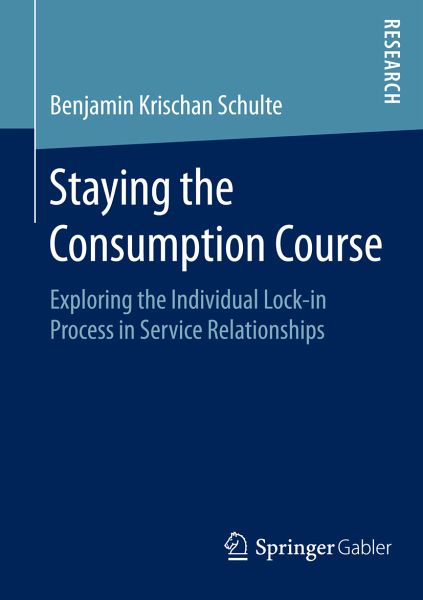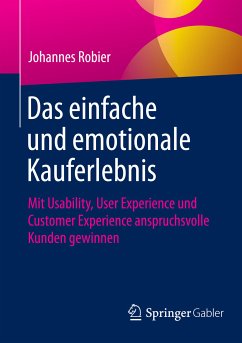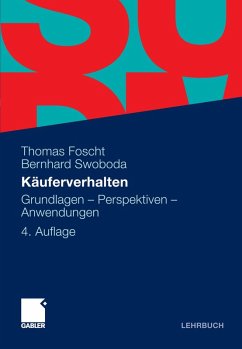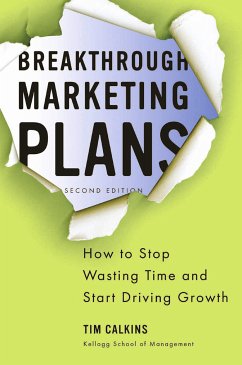
Staying the Consumption Course (eBook, PDF)
Exploring the Individual Lock-in Process in Service Relationships
Versandkostenfrei!
Sofort per Download lieferbar
40,95 €
inkl. MwSt.
Weitere Ausgaben:

PAYBACK Punkte
20 °P sammeln!
Benjamin Krischan Schulte develops a process-model of consumer lock-in in service relationships by connecting three areas of research: path dependence, consumer behavior and service relationship marketing. He defines consumer lock-in as a situation of a potentially unaware inability to switch from or exit a consumption process due to entrenchment with increasing barriers on the individual and/or social level. Switching barriers are elaborated as consumer lock-in mechanisms. The resulting process model is outlined and empirically examined in an explorative panel study of a service relationship ...
Benjamin Krischan Schulte develops a process-model of consumer lock-in in service relationships by connecting three areas of research: path dependence, consumer behavior and service relationship marketing. He defines consumer lock-in as a situation of a potentially unaware inability to switch from or exit a consumption process due to entrenchment with increasing barriers on the individual and/or social level. Switching barriers are elaborated as consumer lock-in mechanisms. The resulting process model is outlined and empirically examined in an explorative panel study of a service relationship process in higher education. The author¿s findings support the presence of consumer lock-in in services as an idiosyncratic process of gradual entrapment. The phenomenon has relevance for researchers and practitioners in complex service relationships, where lock-in was found to be a likely occurrence but difficult to grasp.
Dieser Download kann aus rechtlichen Gründen nur mit Rechnungsadresse in A, B, BG, CY, CZ, D, DK, EW, E, FIN, F, GR, HR, H, IRL, I, LT, L, LR, M, NL, PL, P, R, S, SLO, SK ausgeliefert werden.













